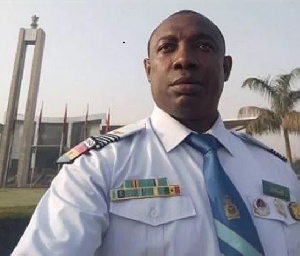Alternative Dispute Resolution (ADR) is a term that refers to several different methods of addressing or resolving disputes outside the traditional and administrative forums.
ADR dates back in our history before the advent of Europeans. The history of Ghana is full of various ADR Mechanisms being employed in the various chiefdoms and kingdoms to resolve conflicts and disputes across the length and breadth of the country.
For reasons unknown, ADR has become the alternative rather than the main mechanism for dispute resolution in Ghana. Somehow, the advent of Europeans and colonialism have made our country to put aside some important aspects of our cultural heritage.
Interestingly, Europeans relied on, and benefitted from forms of ADR in trading in the Gold Coast. For instance, most towns along the coastal belt had Palaver Houses where Palavers were held. Palavers were the main means of conflict resolution in Coastal Ghana during the eighteenth century.
In the book, ‘Where the Negroes are Masters’, Randy J. Sparks (2014), details the important role Corrrantee John and other Caboceers played, using the Palaver system, in resolving trade and interpersonal disputes. While these palavers were often long and drawn-out, it is believed that their outcomes were restorative.
Restorative justice approaches are indigenous to many African cultural systems. It is a preferred outcome in conflict resolution because it was more sustainable and promoted social justice and peace.
Over time however, we adopted the colonial culture, laws and governance systems as superior to our methods. Unfortunate as this may be, my discourse is not on roots of ADR in Ghana neither is it to advance the argument that ADR should be the main and not the alternative to dispute and conflict resolution in Ghana.
Disputes turn to disrupt normalcy in our homes, communities and society at large. Anywhere there is dispute, there is an uneasy calm, hatred, ill-feeling and somehow, a general feeling of insecurity be it in an interpersonal relationship, a family or the community. In seeking redress, disputants use the court system to find lasting solutions to their disputes.
The legal judicial framework is principled and based on strict adherence to rules and regulations without recourse to morality and what has been termed ‘human face’. Such a system is able to resolve conflicts/disputes using these rules and procedures but the unanswered question remains whether the conflict is really resolved and normalcy is restorable.
In some instances, the day judgement is pronounced on a case is the day the ‘real conflict’ begins. A court ruling has no mechanism of fostering peace among disputants. It only makes a determination based on evidence presented and the laid down procedures followed. Restoring relations or taking steps to restore normalcy among disputants are often neglected.
This is partly so because in the legal system, disputants are not truly in-charge of their own cases. Their lawyers, who earned their fame, reputation and money based on the number of cases they ‘win’ are almost always focused on winning at all cost regardless of the social and emotional ramifications thereof. Some disputants are so unsure of the court proceedings to the extent that it is not uncommon to hear a client ask the lawyer after a hearing “what did the judge say?”. The lack of procedural clarity in our formal justice delivery system makes matters worse.
ADR on the other hand seeks to give disputants the opportunity to be involved in the process and most at times own and determine the direction and outcome. Disputants using ADR Mechanisms are involved throughout the process and play a significant role in determining an outcome which becomes morally binding on them.
The outcomes of ADR Mechanisms such as Mediation are not imposed; they are determined by the disputants with the guidance and direction of a third neutral party. Thus the outcome of such a process is not only legally binding but morally and emotionally binding as well. Disputants in most cases are still able to maintain their relationships after successful ADR process.
In addition to these, when the court system is used to settle or resolve family disputes, it most often than not mars the hitherto cordial and peaceful relations that had existed before. In marriage and family disputes, disputants may still have responsibility for ongoing interdependent relationship: i.e. in the form of maintenance, upkeep, child care, etc.
In such disputes, based on my experience in ADR practice, ADR should be used as a first stop gap before litigation if the ADR fails. Family disputes resolved via ADR tend to have more positive impacts on the disputants than when resolved in the traditional courts. In most cases disputants come to mutually acceptable agreement and understanding on how to handle their responsibilities especially in separation cases where children are involved and will still have to be cared for by parents who might be in conflict. ADR should be encouraged and made the first stop in all cases that are ‘ADR Friendly’ or within the ambit of ADR.
The ADR Spectrum. ADR covers a wide variety of tools and mechanisms used by practitioners to bring disputes to a closure. The documented and widely acceptable ones include: Negotiation, Mediation, Arbitration, Conciliation, Pre-trial, Ombudsman, Mini Trial, Rent a Judge amongst others.
Importance of ADR. The importance of ADR in promoting peace and harmony cannot be overemphasised. Amongst others ADR provides a healthier method for resolving disputes. Healthier because it does not have wounds and scars after a successful ADR process. Disputants are not left in wonder as to the outcome because they were not insulated from the process. Disputants mostly shake hands, hug and still relate after a settlement or a resolution of a dispute.
The entire process is understood by all parties. There is procedural clarity and the environment and atmosphere created by the ADR practitioner is friendly and welcoming. Unlike the huge stone wall intimidating structures of the court houses, ADR offices are friendly and cordial.
Another importance of ADR is the preservation of relationships especially those with task interdependence. ADR ensures that at the end of a dispute resolution, disputants would mutually endorse and respect the outcomes. By so doing relations are sometime mended or at least preserved and not made worse.
There are examples of cases in which couples that were threatening divorce ended up renewing their commitment to each other or at least respecting each other and fulfilling their responsibilities to each other or the children that were born out of the relationship. Apart from these, ADR empowers the individual parties to have a stake in the resolution of their grievance(s).
Unlike in litigation where the parties are hardly involved in the actual process, ADR offers disputants not only an opportunity to be part of the process, they also contribute largely to the outcome. Through the various mechanisms employed, disputants are able to discuss, negotiate and help determine an outcome which might be a win-win one and not a win-all situation as in litigation.
Quite apart from these, ADR in most situations is voluntary and hence parties have a moral obligation to comply with the agreed terms of settlement. It becomes easy to encourage parties to comply with terms they themselves have drawn up with the guidance and direction of the ADR practitioner.
It is natural that people who design solutions to their own conflicts are more satisfied with the outcome than people who have their solution thrust on them. ADR also provides absolute confidentiality and allows parties to open up and talk. By so doing parties are able to get the satisfaction of being listened to by a professional.
Sometimes parties in conflict are unable to even hear each other out because of the entrenched positions they assume. The ADR process creates a conducive atmosphere for parties to be heard and be assured that all that they say stays confidential.
The ability to be heard alone is enough relieve for some aggrieved disputants who have probably suffered oppression during the conflict. ADR is a social life skill whose usefulness cut across every human endeavour. Human beings are not machines and sometimes recognition and respect accorded during an ADR Process is enough for an intrinsic peace and relieve.
ADR practice in Ghana
ADR practice in Ghana predates our colonial systems. None the less, the legal basis on which the practice was founded and relied on were the following:
The Supreme Court Ordinance of 1876 provided for ADR practise.
The Arbitration Act 38 of 1961 made provision for ADR (Arbitration and Customary Arbitration).
The current practice of ADR in Ghana is governed by the ADR Act 798 of 2010. This has opened up the practice to both public and private institutional practice. The Act mandates the Ministry of Justice and the Attorney General to establish National ADR Centres under Section 114 to regulate the practice of ADR in Ghana. Mention must be made here that the role of the Attorney General does not involve training of ADR practitioners.
MMDCES and ADR Practice
Section 94 of Act 798 of 2010 makes provision for Metropolitan, Municipal or District Chief Executives (MMDCEs) to promote and encourage the practice of ADR. This section encourages disputing parties to use the National ADR Centre(s) registered in the particular MMDCEs to resolve disputes. The Unit Committees and District Assemblies are then encouraged to use such ADR centres to resolve disputes that are within the domain of ADR.
The disputes or cases that are appropriate for ADR include:
Family and domestic disputes such as maintenance, custody issues, divorce, property settlement and distribution.
Relationship cases e.g. marriage, parent/child.
Commercial cases.
Labour disputes.
Landlord/Tenant disputes.
Land and boundary disputes.
Having stated these, it is equally important to list the cases which are not appropriate for ADR. They include:
Constitutional Issues.
Cases involving public policy and interest.
Human rights cases.
Cases expected to guide or serve as a precedent for the development of the law or government policies.
Criminal offences except minor or non-aggravated offences.
Conclusion
The importance of ADR in contributing to peace in Ghana cannot be overemphasised. The ADR approach to cases, builds, promotes and preserves relationships. By so doing, it reduces hatred, acrimony and ill feeling that conflicts turn to introduce. Conflict is inherent in our social order and the need for it to be handled well will forever be important. Litigation is a good thing but has limitations in building, promoting and preserving peaceful relations amongst people who live side by side in their communities and societies.
Opinions of Wednesday, 25 July 2018
Columnist: Wing Commander Frederick Bawa





![Fatawu Issahaku [L] and Jordan Ayew Fatawu Issahaku [L] and Jordan Ayew](https://cdn.ghanaweb.com/imagelib/pics/718/71828066.295.jpg)









